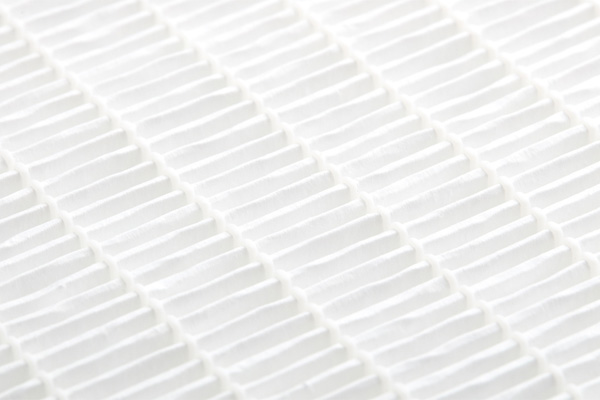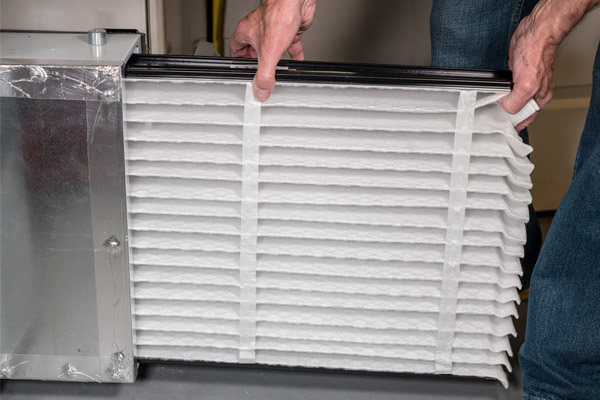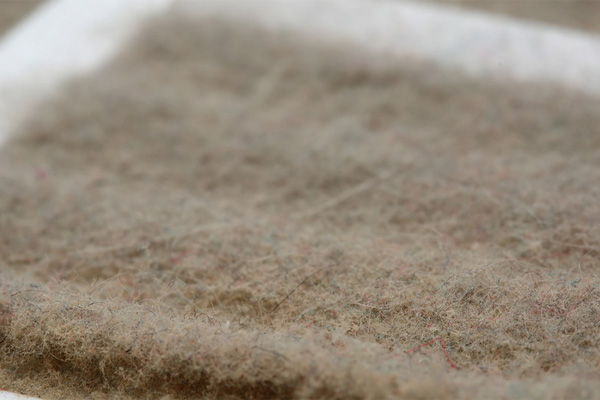Key Differences Between HEPA & MERV Filters

Properly functioning air filters help increase the efficiency of HVAC systems. They are crucial for maintaining good air quality. They work by trapping particles like dust, pollen, pet dander, and other pollutants before they can circulate through the air in a building. These particles can aggravate allergies, cause respiratory issues, and damage the HVAC equipment if they are not removed. Two of the most effective HVAC filters are HEPA and MERV filters. This article discusses HEPA vs MERV air filters.
Key Differences Between HEPA & MERV Filters
Contents
Keep reading to explore more on HEPA and MERV HVAC filters.
HEPA Filters

HEPA stands for High-Efficiency Particulate Air. It is a type of air filter that is capable of capturing very small particles. It works by using a combination of mechanical and electrostatic processes to trap pollutants. The filter media is made from a fine mesh of fibers that are randomly arranged to create a labyrinth of pathways for air to flow through. It also uses an electrostatic charge. As air passes through the filter, particles are trapped in the fibers while the electrostatic charge attracts and capture the foreign particles.
HEPA filters are commonly used in HVAC systems in hospitals, laboratories, and other critical environments where air quality is of the utmost importance. They are also used in homes and businesses to improve indoor air quality, especially for people with allergies or respiratory problems.
To be classified as a HEPA filter, a filter must be able to capture at least 99.97% of particles that are 0.3 microns or larger in size. This makes HEPA filters extremely effective at removing air pollutants, making your environment safer for everyone.
HEPA filters are more expensive than other types of air filters. They also have a shorter lifespan because they clog faster than other filter types. However, they are very effective, making them one of the best options for your HVAC system.
Related Article: What Is Mechanical Ventilation & How Does It Impact Your Home Comfort?
MERV Filters

The acronym MERV, or Minimum Efficiency Reporting Value, is a standard used to rate the effectiveness of air filters. MERV filters are used in HVAC systems to remove common pollutants in the air. They are commonly used in homes and businesses but may also be used in other settings where air quality is a concern.
The MERV rating of a filter is determined by its ability to capture particles of different sizes. MERV ratings range from MERV 1 to MERV 16, with high numbers indicating a greater ability to capture pollutants of various sizes. 1-4 MERV filters are considered to be low-efficiency filters and are typically used to remove large particles like dust and lint. MERV 5 – 8 filters are considered medium-efficiency filters and can capture smaller particles such as mold spores and pet dander. 9 – 12MERV filters are considered to be high-efficiency filters and can capture even smaller particles like bacteria and tobacco smoke. MERV 13 – 16 are ultra-high-efficiency filters that can capture the tiniest particles, like viruses and combustion particles.
The higher the MERV rating, the more efficient the filter is. However, it is crucial to note that high MERV filters can cause airflow restrictions and put extra strain on HVAC systems. Restricted airflow means your HVAC system needs to work harder to provide heating or cooling. This can stress the system and lead to costly repairs, replacements, and maintenance. This should not be a problem for filters with low MERV ratings.
Related Article: The Difference Between A Portable & Whole Home Air Filtration System
HEPA Filters Vs. MERV Filters
Both HEPA and MERV filters are very effective and are considered a standard in the industry. However, there are some critical differences between the two:
- Air Filter Efficiency: HEPA filters are the most efficient air filters because they capture more pollutants. While there are high-efficiency MERV filters, they are not up to the standards of HEPA filters. If you require high indoor air quality, HEPA filters are the best option for you.
- Size of Particles Captured: HEPA filters can capture very small particles down to 0.3 microns, including bacteria, viruses, and smoke. MERV filters can also capture a range of particle sizes but not as small as HEPA filters. The more particles your filter can capture, the safer your space is.
- Air Filter Cost and Lifespan: HEPA filters are typically more expensive than MERV filters. They also have a shorter lifespan because they capture more particles, so they clog up quickly. They may need regular maintenance and replacement, which can add to the cost. MERV filters are more affordable and last longer than HEPA filters.
- Airflow restriction: MERV filters with higher MERV ratings can reduce airflow, while HEPA filters offer less airflow restriction. Restricted airflow can put a strain on your HVAC system, so it may require more maintenance.
- HVAC Air Filter Use: MERV filters are primarily used in homes and businesses to address common air quality concerns. In contrast, HEPA filters are used in more critical settings like hospitals and laboratories where air quality is of the utmost importance. It is also used in homes and businesses where people require better air quality due to allergies and respiratory issues.
It is important to note that some filters are designed for specific use and compatible with certain HVAC systems. Determining the best filter to use will depend on your air quality requirements and the HVAC system you have. Consult with a professional HVAC technician and do your research so you can choose the right filter that will cater to your needs.
Related Article: 7 Reasons Your Filter Isn’t Improving Your Indoor Air Quality
Conclusion
In general, HEPA filters are more effective at removing small particles than MERV filters, but they are also more expensive and can be more challenging to replace. Air filters are essential in maintaining indoor air quality by trapping dust, dirt, and other particles and preventing the build-up of mold and bacteria, which can lead to unpleasant odors and health problems. Be sure to discuss your needs with an expert HVAC technician. They can help you make an informed decision when selecting the best filter and air quality solutions for your home.
Call McAllister Energy For All Of Your HVAC Requirements
 McAllister Energy offers superior heating and cooling services in Camden County, New Jersey. We hire the best-certified technicians who can provide you with excellent HVAC tune-ups, repairs, installations, and replacements. Each of our techs has the knowledge and experience to service your HVAC system correctly.
McAllister Energy offers superior heating and cooling services in Camden County, New Jersey. We hire the best-certified technicians who can provide you with excellent HVAC tune-ups, repairs, installations, and replacements. Each of our techs has the knowledge and experience to service your HVAC system correctly.
McAllister Energy guarantees the most competitive heating and cooling service costs in the area. Our maintenance services can improve your comfort and increase your energy efficiency while reducing your home heating and cooling costs. If you happen to need an HVAC repair or replacement system, we can recommend the best one for your home while staying within your budget. We back all of our work with a guarantee to ensure your satisfaction. To schedule a service appointment, give McAllister Energy a call today. We offer free, in-home estimates.
You can click here to contact us now or call us at (856) 665-4545 to find out more! Click the link to view our service area.